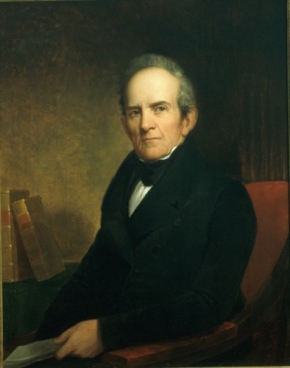You are here
Circuit Court Opinions:
Associate Justice Smith Thompson, Barker v. Jackson (1826)

Barker v. Jackson, 2 F. Cas. 811 (C.C.S.D.N.Y. 1826) (No. 989) [Second Circuit]
Barker dealt with a challenge to a New York statute of 1797 establishing a commission to decide disputes related to military bounty land (i.e., land set aside to compensate soldiers who had served in the Revolutionary War) in Onondaga County. The plaintiff alleged that the statute violated the state constitution, which provided the right to a jury trial in all cases. A jury in the U.S. District Court for the Northern District of New York held the statute unconstitutional. Because the Northern District had no U.S. circuit court until 1837, the case went to the circuit court for the Southern District on a writ of error.
Justice Thompson reversed the judgment below, finding that the statute did not violate either the New York or federal constitutions. The basis for his holding was that the commission established by the statute was not intended to be and did not operate as a court. It had no power to compel appearances by parties and witnesses or to enforce its decisions. Instead, the statute provided that any affected party could challenge a decision of the commission by filing a lawsuit in the state courts within three years. Therefore, Thompson ruled, the statute was nothing other than a statute of limitations and did not deprive anyone of a trial by jury.
In making his ruling, Thompson noted that the New York state courts had treated the statute as constitutional for nearly thirty years, and a ruling to the contrary would have a severely disruptive effect on longstanding titles to the land in question. The decision reflected Thompson’s inclination to uphold settled titles to land as well as to respect state courts’ interpretation of state statutes.
